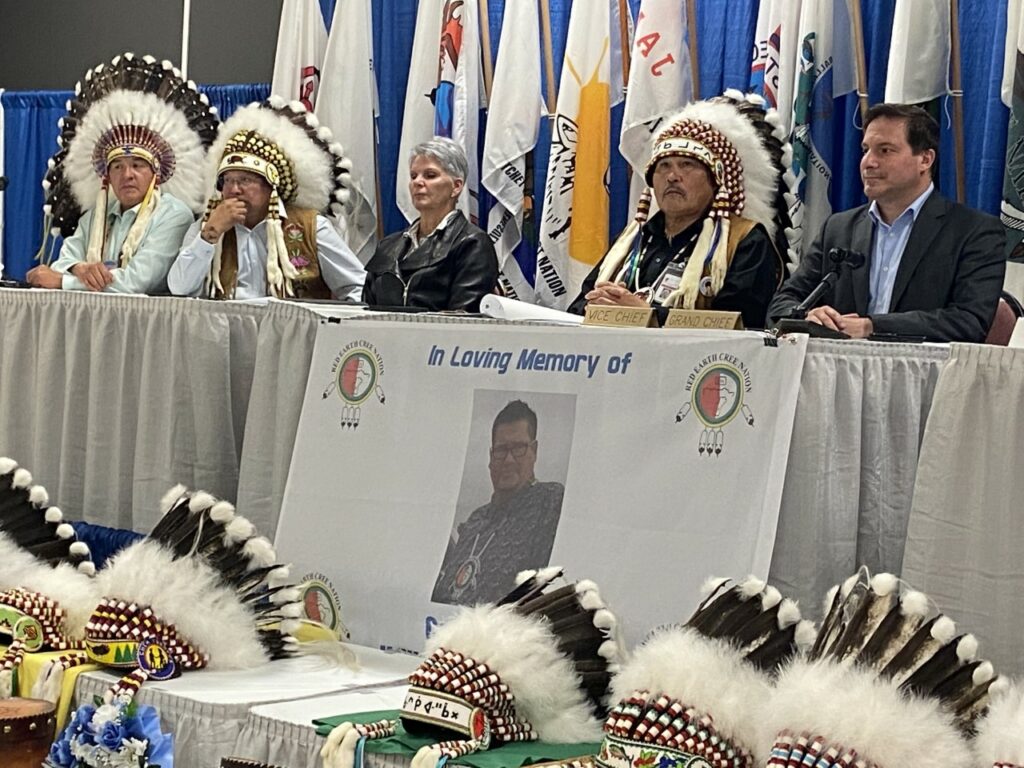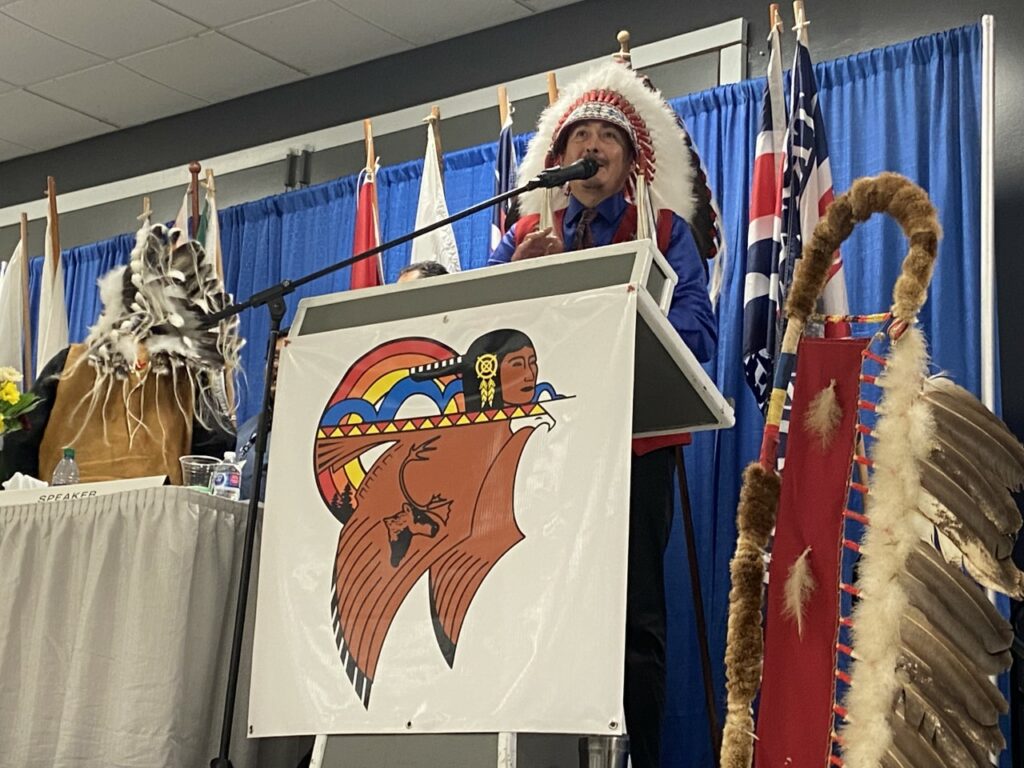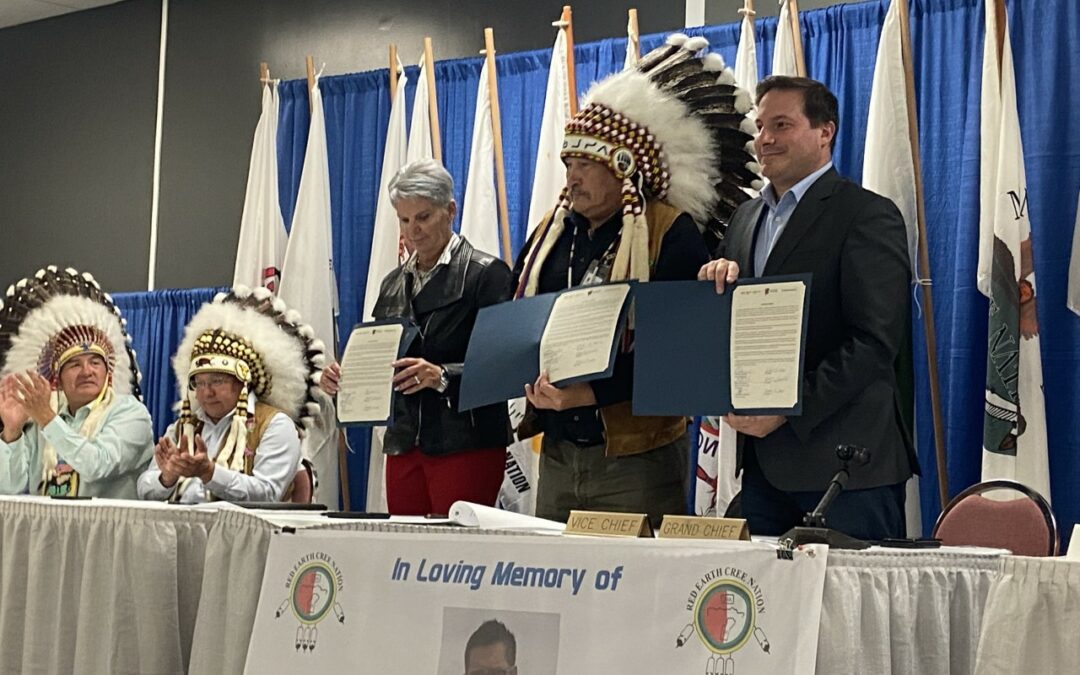The Prince Albert Grand Council (PAGC) has signed an agreement with the federal and provincial governments to work at improving safety in their communities.
The memorandum of understanding (MOU), which was signed Monday at the PAGC’s General Assembly at the Prince Albert Exhibition, looks to get the process started when it comes to setting up First Nations policing along with other measures to improve community safety. The provincial government was represented by the Minister of Corrections, Policing and Public Safety Christine Tell, while the federal government was represented by Minister of Public Safety Marco Mendicino.
Speaking to media after the signing ceremony, Mendicino said the letter will bring everyone involved together and allow for a range of possible solutions to be looked at when it comes to improving overall safety in the communities which make up the PAGC.
“By signing the letter of intent today with PAGC we’re going to be [setting] up a PAGC and Public Safety team that’ll be comprised of PAGC representation, representation from the federal government and representation from the Government of Saskatchewan, that work is going to commence as quickly as possible, beginning early in 2023,” he said.
Mendicino added the research done by this team will dictate the way forward when it comes to possible changes. He explained if PAGC so decides, it could lead to the creation of a self administered First Nations policing service.
“The vision of this letter of intent is to put in place the building blocks and the foundation to get to that moment,” he said.
The federal public safety minister, a former federal prosecutor, stressed enforcement is not the only solution when it comes to dealing with crime. Mendicino said supports for healing lodges and other efforts at rehabilitation to help reduce the rate of recidivism need to be part of the conversation as well.
“That’s the only way we’re going to break the cycle of the inter generational trauma that leads to the loss that we saw on Sept 4 in James Smith Cree Nation,” he said.

(Bobby Cameron, left, Wally Burns, Christine Tell, Brian Hardlotte and Marco Mendicino. Photo Courtesy of Michael Joel-Hansen)
Speaking to the general assembly before the signing of the MOU, Minister Christine Tell said the provincial government recognizes the positive impacts community policing can have for First Nations and Indigenous communities, she added the events at James Smith show that public safety on First Nations is something which needs to be addressed. The minister said overall the MOU is a step in the right direction.
“Collaboration, partnership and respect are all imperative as we move forward with this strategy, we know there is more work to be done, but big changes happen with small steps,” she said.

(PAGC Vice Chief Joseph Tsannie speaking to the assembly before the signing of the MOU. Photo Courtesy of Michael Joel-Hansen.)
PAGC Vice Chief Joseph Tsannie told media when it comes to finding solutions to the safety issues in their communities the tribal council is looking to speak with people living in those communities to get their thoughts. He explained it is important for their to be engagement as PAGC is made up of 28 different communities, many of which are dealing with their own unique challenges.
“The inspiration ideas come right from the grass roots, from the community engagement that we’re going to be doing,” he said.
The Vice Chief said there is no one model to look to when it comes to improving community safety. He explained the tribal council has heard from a wide range of people and communities that have their own justice systems and processes. He added what they are looking to do working with the federal and provincial governments is truly something different.
“There is no road map and we’re developing that road map and we’re part of that community safety planning initiative, that’s something and also that legislation that’s going to be drafted up, that’s going to be huge,” he said.
Looking towards the future, Tsannie said when it comes to policing, the RCMP will continue to be part of the picture to help protect their communities. However, he said the relationship will be a different one.
“The RCMP will always be there, they’ll be our partner, a true meaningful partner in terms of, in the spirit of reconciliation, what we’re talking about,” he said.
(Top Photo: Christine Tell, left, Brian Hardlotte and Marco Mendicino hold up the signed MOU documents. Photo courtesy of Michael Joel-Hansen.)
